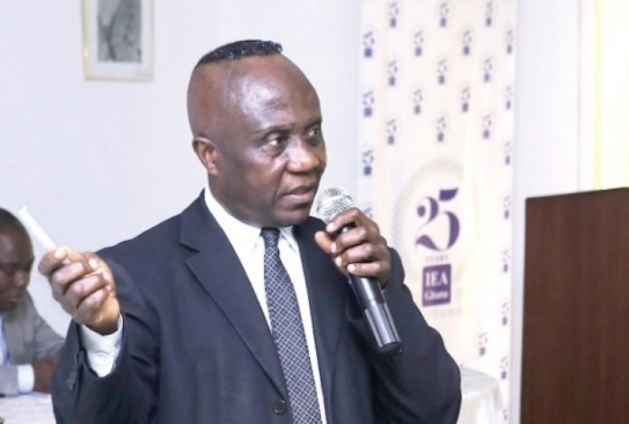High lending rates: IEA blames government, BoG, banks
The debate over high lending rates in the country will not end anytime soon, as the Institute of Economic Affairs is blaming the high cost of credit on government, banks and the Bank of Ghana.
Though the institute believes the problem is multifaceted, it is attributing the high cost of loans to these three actors.
According to the Director of Research at the IEA and Senior Economist, Dr. John Kwakye, banks contribution to high lending rates which emanates from their inefficiencies, and government continuous borrowing from banks to finance the budget are major causes of the high cost of loans.
“Banks contribution to high lending rates emanates from their inefficiencies, high operating costs, poor appraisal of projects, collusive practices and customer capture”, the Senior Economist said are some causes of high lending rates.
For government, he said “government responsibility for high lending rates emanating from borrowing from banks to finance the budget, macroeconomic instability associated with high budget deficits, and high and multiple taxes imposed on banks.”
With regard to the Bank of Ghana, he attributed the causes of expensive loans to “the role of the monetary and regulatory authority in high lending rates emanating from the inherently upward bias of monetary policy on interest rates, cost of high and currency-differentiated reserve requirements and lack of well – functioning Credit Reference Bureaux”.
Whilst, the spread between lending rate and policy rate is about 7%, that of lending rate and savings rate is about 12%.
Studies have also shown that factors such as cost of funds, Treasury bills rate, non-performing loans and inflation are the major contributing factors to the high lending rates.
Also, the high lending rate inhibit investment and economic growth as well as contributing to the rising prices of goods and services in the country
IEA recommendations to address high lending rates
Dr. Kwakye made some recommendations in order to address the high lending rates in the country.
On the part of the banks, he urged the financial intermediaries to reduce their operating and overhead costs.
“Addressing operational inefficiencies to reduce costs so that they are not passed on to consumers. Improve working processes and systems through modernization and more digitization.”
“Strengthen customers’ project appraisal capacity to reduce incidence of loan defaults and the effect on costs”, he added.
For government, he called for the reduction in borrowing from the domestic market, but urged the Bank of Ghana to reduce the primary reserve ratio from the current level of 8% to 5% to reduce the associated costs to government.
Secondly, Dr. Kwakye urged government to streamline bank taxes to help reduce their costs, adding “provide a level playing field in respect of their corporate tax.”
With regard to the monetary and regulatory authority, the IEA Director of Research urged the Bank of Ghana to ensure that the fight against inflation does not itself fuel high lending rates. This requires a broader approach to fighting inflation, including paying attention to the supply – side causes, as overly emphasis on demand management tends to weigh on interest rates.
“Reduce the primary reserve ratio from the current level of 8% to 5% to reduce the associated costs to banks. Further, allow banks to cover their dollar deposits with dollar reserves to avoid their exposure to exchange risk and its passage on to lending rates”, he added.
Latest Stories
-
US Supreme Court lets Trump end deportation protections for 350,000 Venezuelans
12 minutes -
IGP orders raid on illegal mining hub at Wassa Gyapa after JoyNews reports
24 minutes -
Russia and Ukraine to ‘immediately’ start ceasefire talks, says Trump
34 minutes -
France to open high-security prison in Amazon jungle
44 minutes -
Gary Lineker: A sorry end to a BBC career
57 minutes -
Lineker to leave BBC sooner than planned after antisemitism row
1 hour -
Nigerian judges endorse Ikot Ekpene Declaration to strengthen digital rights protection
1 hour -
Call for load shedding timetable misplaced; power generation meets peak demand – Energy Ministry
1 hour -
Cedi records 17.17% appreciation to dollar; one dollar going for GH¢13.50
2 hours -
Interplast named among Financial Times’ fastest-growing companies in Africa
2 hours -
GPRTU to reduce transport fares by 15% effective May 25
2 hours -
Ghana Alphas, Tau Alpha Lambda donate to Abeadze State College
2 hours -
I’ve closed all ECG’s bank accounts except for one single holding account at GCB Bank – Energy Minister
3 hours -
Screenwriters Guild of Ghana, Producers Guild, and National Film Authority forge alliance to elevate Ghana’s Film Industry
3 hours -
Dr. Adu Anane Antwi appointed Chairman of new SEC Board
3 hours

